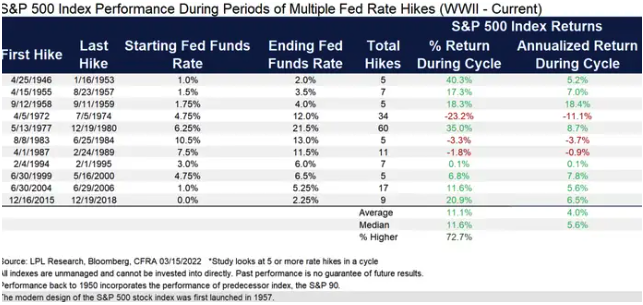Zenith: There are four plausible scenarios for the path forward
Central bank rate hikes have caused damage across a whole range of asset classes from unprofitable tech companies to the global bond market and the US financial system.
But that might all be about to change, argues Zenith's Damien Hennessy. With inflation expectations relatively well anchored and inflation itself well on the way down, Hennessy believes central banks will soon start easing policy rates.
He goes on to argue that there are four possible scenarios for how these rate cuts will play out - and in turn, impact financial market returns.
In this wire, I'll share Hennessy's four scenarios - and the factor which will decide which one of the four scenarios plays out in its entirety.
.jpg)
Rate cuts? Now?
"Markets have entered an awkward phase where inflation is declining and growth is beginning to slow, but neither is changing enough to allow for any imminent rate cut, even though the market seems to be currently pricing one in," he says.
Those cuts are being seen across the curve in various countries including the US and Australia. Traders here believe the RBA cash rate could be 55 basis points lower than where it is now (essentially two cuts) by October 2024.
So who will be vindicated? Hennessy argues central bankers will prefer to err on the side of caution.
“While we are waiting for inflation and labour markets to slow, central banks will be inclined to keep policy tight as they don’t want to take a risk on inflation," he says.
History repeats itself...
The data tells us that buying the index at the peak of the US Federal Reserve’s tightening cycle has been a reasonable strategy two-thirds of the time.

Since the early 1950s, there have been 15 tightening cycles. In the six months following the last hike, the S&P 500 has risen on 10 of those occasions with an average rise of 14%. Over the subsequent 12-month period, the market has risen on 10 occasions at an average of 21%. On only five of the other occasions, the equity market continued to decline.
So why might equity market declines continue even if the Fed has stopped raising rates?
“In 1959, 1969 and 2000, Fed funds were essentially on hold for around six months post the last hike, and inflation was fairly steady. The markets did not like this. There is a risk we could see a repeat of this," Hennessy notes.
What do the corporates say?
In the meantime, Mr Hennessy says, earnings have held up relatively well.
“Inflation-driven cost increases have been able to be passed on to consumers who, at least until early this year, were still spending. But that will become increasingly difficult in the coming quarters."
“Central banks have been successful in keeping longer-term inflation expectations anchored at around 2.5%. Historically, equity markets have tended to de-rate when investors are in deflationary or inflationary environments," he added.
Local market outlook
The Australian economy has inflated by 20% over the past two years, due to higher inflation, a bounce in commodity prices, and resilient corporate profits. And despite all this, debt as a share of GDP continues to hover at around 22%. This is far lower than other countries like the US, Canada, and especially Japan.
That makes this cycle's potential list of outcomes unusually wide and interesting. In his view, there are four possible endgame scenarios.
“We consider there to be four plausible scenarios: stagflation, a credit crunch, a soft landing or a mild recession," he says.
So what will be the deciding factor? Hennessy argues it's how quickly the Fed brings down interest rates. If inflation continues to remain below expectations, Chair Jerome Powell may decide that the economy has tightened just enough to bring rates down.
Only time - and data dependency will tell.
3 topics

